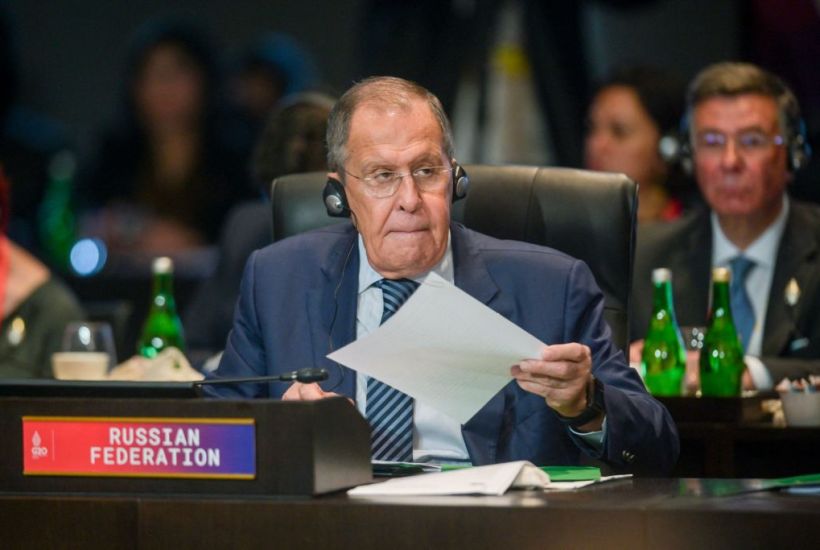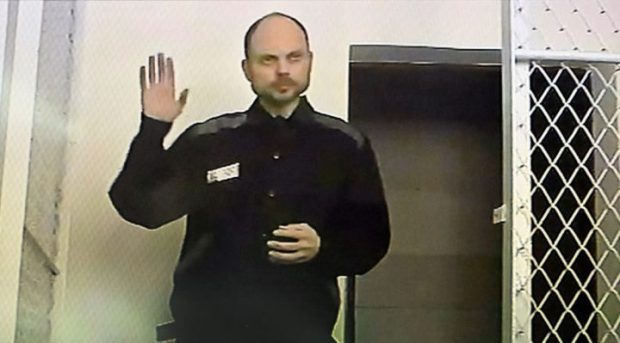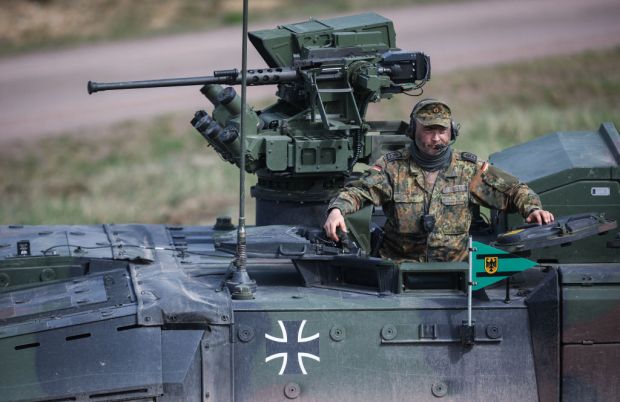In the warmth of the Balinese sunshine, Russia has received an unsurprisingly frosty reception from fellow participants at the G20 summit. Barely a few hours in, the tension is already acute. The source of this tension, of course, is Russia’s invasion of Ukraine.
The first summit to be held since the beginning of the war earlier this year, some member states were already questioning whether Russia should still be allowed to retain membership of the G20. Meanwhile, in light of the war, Ukraine was invited to participate in this year’s summit as a guest. Perhaps in anticipation of this, it was announced last week that Russian president Vladimir Putin would not be attending. Foreign Minister Sergei Lavrov has gone in his place.
Lavrov is the ghost at the feast. Try as the Indonesian organisers of the G20 might to avoid the subject of Russia’s war (issuing a group communique on the summit is reportedly proving particularly difficult), and keep the focus on subjects such as the global economy and post-Covid recovery, it has proved impossible. The other world leaders attending have seized upon the opportunity of sitting in the room with Putin’s representative to condemn Russia’s actions.
Britain, once again, has been keen to lead the charge on this. Addressing the summit this morning, with Lavrov in the audience, Sunak condemned the war in Ukraine again and hit out at Putin directly. He said: ‘One man has the power to change all of this. It is notable that Putin didn’t feel able to join us here. Maybe if he had, we could get on with sorting things out.
Lavrov’s comments, and the attitude of the Russian press, must be viewed in the context of Russia’s performance in the war
‘The single biggest difference anyone could make,’ he continued, ‘is for Russia to get out of Ukraine and end this barbaric war.’ Referencing Russia’s blockade of grain leaving Ukraine, he called Russia’s weaponisation of energy and food in recent months ‘totally unacceptable’ and, echoing comments notably made by China’s President Xi yesterday, condemned Russia’s recent threats of nuclear escalation.
Ukrainian President Volodymyr Zelensky, too, made an appearance at the summit via video link, at which he pointedly addressed the gathered members as the ‘G19’, excluding Russia. In his speech he set out a ten-point peace plan, including withdrawal of all Russian troops and energy and food security, and reiterated that Ukraine would not accept a ‘Minsk 3’-style agreement to end the war, saying that Russia would ‘violate it immediately’.
Unsurprisingly, the Russian media have been selective in their coverage of the summit. None have, at the time of writing, chosen to report on Sunak’s attack on Putin this morning, with just a few relaying his words from yesterday calling Russia a ‘pariah state’. The broadsheet newspaper Kommersant dedicates a singular line in its morning briefing headlined ‘Sunak proposes a plan to reduce Russia’s influence on the global economy’. Without elaborating, the article states ‘British Prime Minister Rishi Sunak called Russia a ‘pariah state’ and proposed a plan to reduce its influence on the global economy.’
State-supporting broadsheet Izvestia, meanwhile, carries a response from the Kremlin’s press secretary Dmitry Peskov back in Moscow to Sunak’s accusations of Russia’s weaponisation of grain. Calling his statement ‘fundamentally wrong’, Peskov said that, in fact, Russia was ‘helping to ensure’ grain was being exported from Ukraine to the rest of the world.
The Russian media’s reaction to Zelensky’s speech and ten-point peace plan has, however, been more surprising. Almost every newspaper carries headlines on the Ukrainian President’s rejection of a ‘Minsk 3’-type peace deal, but crucially, while condemning it, the state-backed press has spun the story to suggest it is Ukraine, and not Russia, who wants to end the war. Once again, Izvestia carries Peskov’s reaction to Zelensky’s determination not to compromise with Russia, stating that ‘Zelensky’s exclusion of the possibility of new Minsk agreements confirms Kyiv’s unwillingness to negotiate’, while highlighting Russia’s willingness to come to the negotiation table.
Meanwhile, the Kremlin-funded news agency TASS carries Lavrov’s response to Zelensky’s comments. Under the headline ‘Russia is not the one refusing negotiations, it is Ukraine’, the Russia Foreign Minister is reported as saying ‘we have repeatedly confirmed via the President that we are not refusing to negotiate. If anyone is refusing, it is Ukraine. And the longer it refuses, the more difficult it will ultimately be to negotiate.’
Kommersant reports Lavrov branding Zelensky’s ten-point plan ‘unrealistic and inadequate’. According to the paper, he went on to call on the West to ‘discipline’ Zelensky and persuade them to begin negotiations with Russia.
Lavrov’s comments, and the attitude of the Russian press, must be viewed in the context of Russia’s performance in the war. Following several months of strategic defeats, culminating last week in the Russian army’s humiliating withdrawal from the recently annexed Kherson, the mood in the Kremlin and amongst Russians is changing. Criticism of the military’s performance has got louder in the state media, while, in scenes reminiscent of Russia’s 1991 war in Chechnya, reports have started to emerge of Russian mothers travelling to the front line to persuade their sons to desert and come home. The press’s condemnation of Zelensky’s refusal to, in their eyes, negotiate at all, appears, not to be game-play but at least superficially sincere.
Few are under the impression that Bali’s G20 summit will produce a significant breakthrough for Russia’s war in Ukraine. As things stand, it seems unlikely that Russia would be willing to enter any form of negotiations, sincere or otherwise, on any terms but their own. But the cold shoulder shown to Lavrov has not gone unnoticed by the Foreign Minister, or the Kremlin more broadly. Their protestations through the press, both to Sunak’s comments and Zelensky’s, provides the slightest of hints that the consequences of Russia’s self-inflicted pariah status might actually, finally, be hitting home.
The post Russia receives the cold shoulder at Bali’s G20 summit appeared first on The Spectator.
Got something to add? Join the discussion and comment below.
Get 10 issues for just $10
Subscribe to The Spectator Australia today for the next 10 magazine issues, plus full online access, for just $10.




















Comments
Don't miss out
Join the conversation with other Spectator Australia readers. Subscribe to leave a comment.
SUBSCRIBEAlready a subscriber? Log in